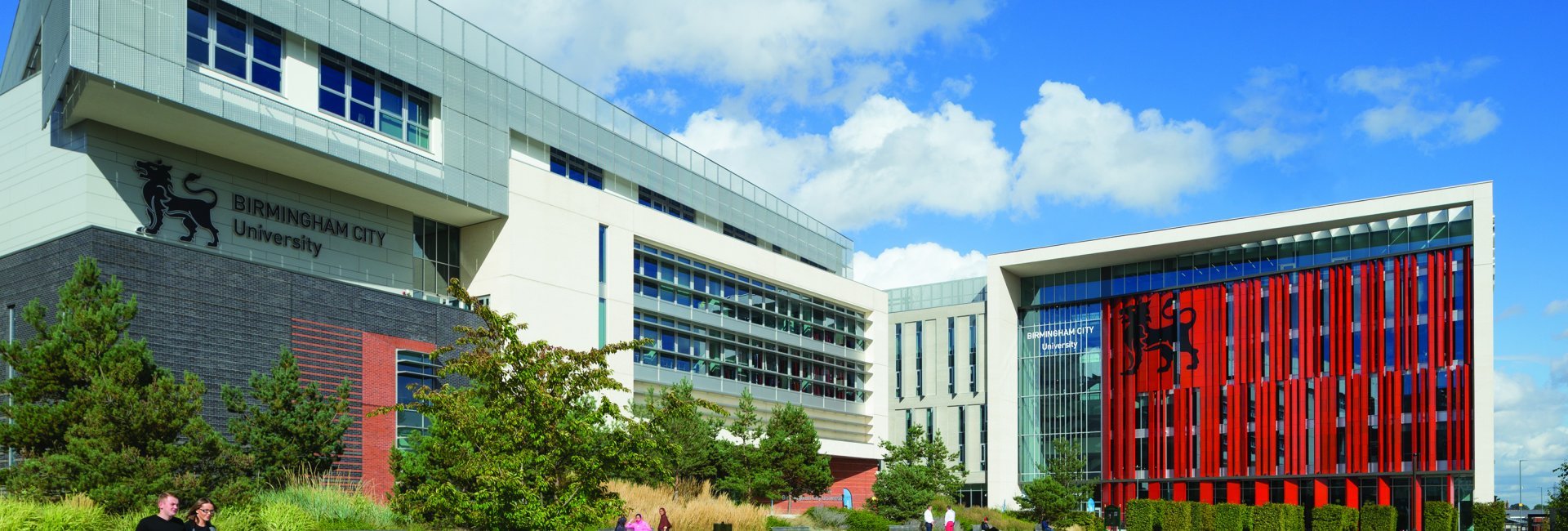Birmingham City University Undergraduate and Postgraduate Open Day, 28th June 2025
28 Jun 2025, 09:00
Birmingham

Do you want to work at the forefront of industry? Our BEng (Hons) Electronic Engineering course will teach you a broad range of skills, helping you to become a rounded electrical engineer.
Throughout your degree study, you’ll have access to our state-of-the-art technology and resources, plus you’ll have the opportunity to secure yourself an industry placement, giving you instrumental electrical engineering work experience.
The Electronic Engineering will give you an understanding of the social, commercial, legal, ethical, economic and environmental factors associated with engineering, as well as comprehensive knowledge of the science and mathematics associated with the discipline. You will also develop the key transferrable skills that modern employers require, such as problem solving, project planning, presentation and communication. Our competitions, such as the annual Engineering Show, which includes the international micro-mouse competition, gives you the opportunity to participate in a range of competitions centred on autonomous and non-autonomous robotic vehicles.
Our engineering courses focus on project-based activities, giving you lots of opportunity to work in teams on projects from design to implementation. This will give you practical experience of applying engineering science to real world problems, working in multidisciplinary teams to develop your interpersonal skills, and prepare you for a key aspect of modern engineering practice.
You’ll also have the option of a placement during your course, either through a summer internship or year-long sandwich placement, which will provide you with the real-life skills and experience you’ll need to stand out from the crowd upon graduation. This has helped former graduates progress into roles within companies such as UTC Aerospace and Vector GB.
Professional Placement Year
This course offers an optional professional placement year. This allows you to spend a whole year with an employer, following successful completion of your second year, and is a great way to find out more about your chosen career. Some students even return to the same employers after completing their studies.
If you choose to pursue a placement year, you will need to find a suitable placement to complement your chosen area of study. You will be able to draw on the University’s extensive network of local, regional, and national employers, and the support of our Careers teams. If you are able to secure a placement, you can request to be transferred to the placement version of the course.
Please note that fees are payable during your placement year, equivalent to 20% of the total full-time course fee for that year.

Learn what it's like to study at Birmingham City University. From key stats to campus highlights, open days, and more - find everything you need to know here.
The following entry points are available for this course:
Welsh Baccalaureate: 112 UCAS tariff points. Considered with two A Levels or equivalent level 3 qualifications. Considered alongside A Levels or equivalent level 3 qualifications, one of which must be Maths.
OCR Cambridge Technical qualifications: 112 UCAS tariff points. Accepted subjects: Engineering.
NCFE CACHE Level 3 qualifications: 112 UCAS tariff points. Considered alongside A Levels or equivalent level 3 qualifications, one of which must be Maths
WJEC Level 3 qualifications: 112 UCAS tariff points. Considered with two A Levels or equivalent level 3 qualification(s). Considered alongside A Levels or equivalent level 3 qualifications, one of which must be Maths
| Test | Grade | Additional details |
|---|---|---|
| IELTS (Academic) | 6 | overall with no less than 5.5 in each band. |
This section shows the range of grades students were previously accepted with - learn more. It is designed to support your research but does not guarantee whether you will or won't get a place. Admissions teams consider various factors, including interviews, subject requirements, and entrance tests. Check all course entry requirements for eligibility.
Students aged 17/18 who applied to this course were offered a place.
See how students with your grades have been accepted onto this course in the past.
Operated by the Office for Students
Employment after 15 months (Most common jobs)
Go onto work and study
The number of student respondents and response rates can be important in interpreting the data – it is important to note your experience may be different from theirs. This data will be based on the subject area rather than the specific course. Read more about this data on the Discover Uni website.
| Location | Fee | Year |
|---|---|---|
| England | £9250 | Year 1 |
| Northern Ireland | £9250 | Year 1 |
| Scotland | £9250 | Year 1 |
| Wales | £9250 | Year 1 |
| EU | £16085 | Year 1 |
| International | £16085 | Year 1 |
Tuition fee status depends on a number of criteria and varies according to where in the UK you will study. For further guidance on the criteria for home or overseas tuition fees, please refer to the UKCISA website.
No additional fees or cost information has been supplied for this course, please contact the provider directly.
University House
15 Bartholomew Row
Birmingham
B5 5JU
Visit our website Visit our course page
Email:courseenquiries@bcu.ac.uk
Phone:0121 331 6295